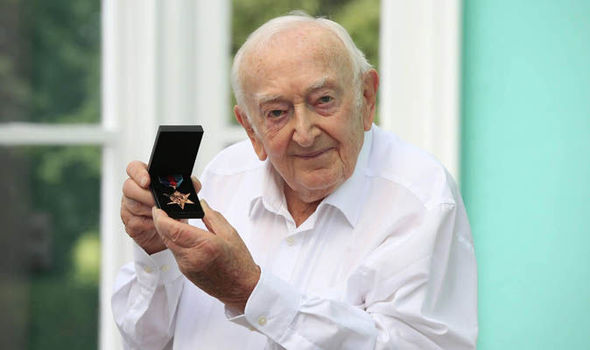Sydney Hulls, sports correspondent of the Daily Express for 33 years, has died at the age of 97. DAVID MILLER, former chief sports correspondent of The Express and subsequently The Times, London and official historian of the IOC, pays tribute to Hulls, who served on the SJA committee for 19 years.
The world of journalism is never short on characters, of varying hue. Such a one was Sydney Hulls, for over 40 years the literal life and soul of any social gathering within taxi-range, pre- or post- any significant boxing or track and field event. The word ‘genial’ could have been coined specifically to define Sydney.
Son of a boxing promoter, Sydney was a celebrated figure within a dynamic Daily Express organisation in the second half of the twentieth century: daily circulation in excess of 4 million, and global leader in political and diplomatic exclusives. Typically emerging from local journalism, Sydney had an intuitive nose for a story, yet his sympathetic nature enabled him to be professionally inoffensive, friend to all.
It is therefore more celebration than sorrow now to remember his exceptional innings at life’s occasionally turbulent wicket: concluded peacefully after a short illness aged 97 on May 21.

Sydney’s longevity had included the gift of rare good fortune. In September 1944 – though reluctant to relate the horror – Sydney was pitched into Operation Market Garden: the vain Allied assault upon Arnhem in attempt to capture a critically German-held bridge across the Rhine. A gunner with 1st Airborne Division, radio operator Hulls was among the first gliders launching 10,000 men – he with six colleagues, a jeep and a motorcycle – landing in a potato field. Faulty intelligence had underestimated massive German defence: the Allies were overwhelmed, surrounded, under mortar fire for ten sleepless days of trench warfare, with 1,500 lives lost and 6,000 captured.
Sydney and his crew finally retreated to safety across the Rhine in a tiny inflatable to re-join Allied occupied territory. For 71 years, heroism faded into history until, in 2015, a bashful Hulls received, at a sedate luncheon, his three previously unaccounted wartime service medals from a remorseful Ministry of Defence.
While professionally resourceful in pursuit of news, sporting contest and a revealing interview, Sydney was expansive in his knowledge of, or unrelenting quest for, the best restaurant in town, from Tokyo to New York to Newcastle.

Beaverbrook expense accounts were liberal (in those days) in acknowledgement of excessive unpaid overtime, craftily not compounded in pension calculations. Meanwhile, Sydney’s instinct unerringly led him to the heart of the objective: legend has it that Muhammed Ali cooked him a spaghetti supper prior to the epic bout against Joe Frazier in Kuala Lumpur in 1975. His experiences embraced two decades of Olympic Games.
Sydney’s infectious energy was not always a match for travel fatigue. Heading for Las Vegas to recount the contract signing for would-be British heavyweight sensation Joe Bugner against Ali, Sydney and a couple of colleagues, landing after nearly 24 hours, discovered en route to the hotel that Liza Minelli was on stage that evening. At midnight.
“A must,” pronounced Sydney. You’re crazy, it’s breakfast time back home, lamented his colleagues. Sydney insisted: a shower, clean shirt, fifty-dollar tickets, off they went. Problem? Only that Sydney promptly fell asleep through the entire performance, awakening amid the torrent of concluding acclaim to leap from his seat, trumpeting “Bravo! Bravo!” never a man to scorn an opportunity.
Sydney was expansive in his knowledge of, or unrelenting quest for, the best restaurant in town, from Tokyo to New York to Newcastle
To the many who worked with him, whether men or women, Sydney was appreciated for his conviction that life was worth living. He and I travelled together in 1974, during the global fuel crisis, on an interminable plane-hike – Heathrow – Brussels – Athens – Dubai – Sri Lanka – Singapore – Sydney – Christchurch – for the Commonwealth Games. Falling exhausted into our shared bedsit, Sydney proceeded to pour himself what looked like a litre of Duty Free G-and-T, consumed in a single draft with the exclamation “Ah! That’s better.” What an optimist.
For the impending ten-day demand of a 15-hour workload across a dozen sports – including one of the most memorable 1500 metres races between world record-breaking Filbert Bayi and domestic hero John Walker – Sydney was the most collaborative of colleagues, then and down the years. To have shared life with him was a reward.
ALSO READ
- RIP Mike Ellis ‘superb operator’
- RIP Charles Randall ‘ diligent and polite’ Telegraph writer
- Peter Jackson on Terry Cooper – he set the rugby agenda
- Stephen Jones tribute to Nick Mason
- Athletics writer Neil Allen who watched Bannister break mile record, dies at 86
- Ken Jones tribute by Norman Giller
- Norman Giller’s tribute to Steve Curry
- Emery on Curry – flourishing among the big beasts of football
- RIP: Joe Rigby ‘the perfect sports sub’